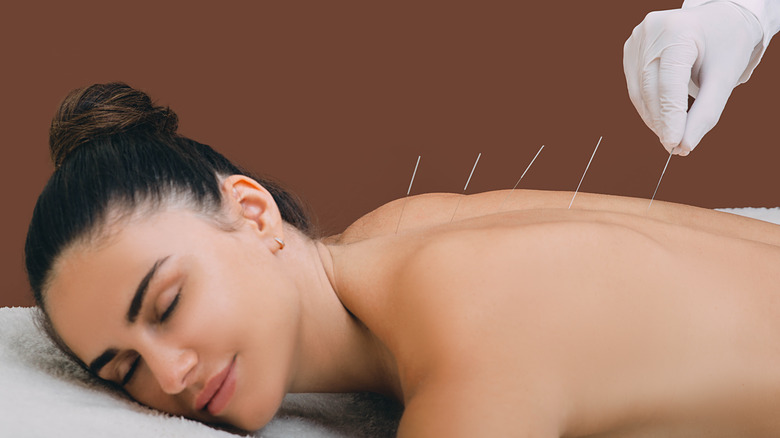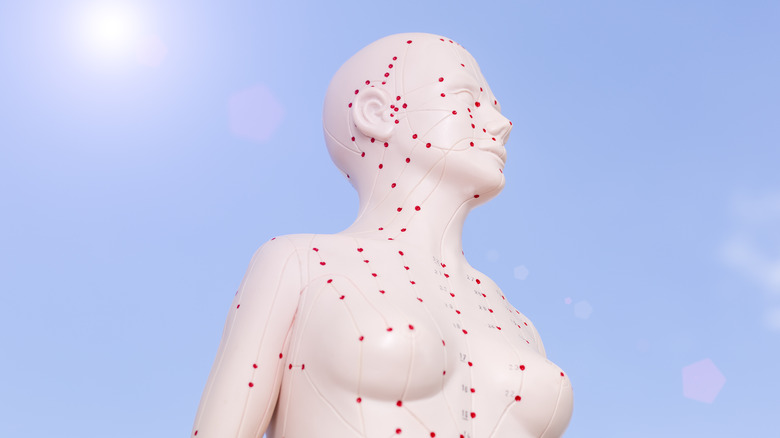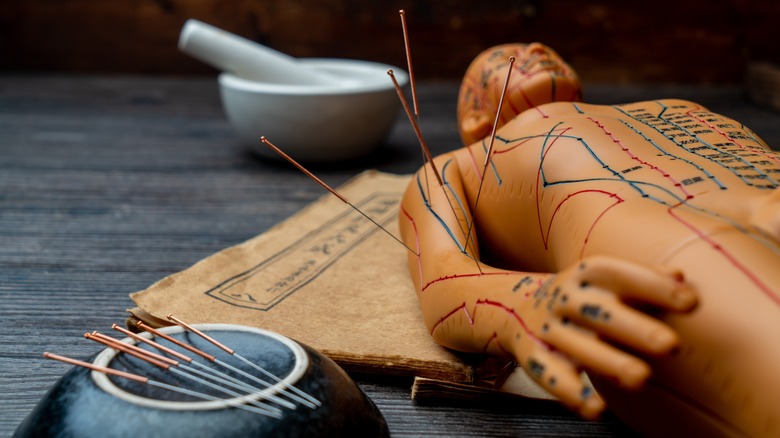How Acupuncture Can Help You Reset Your Internal Clock
You may be prone to lateness, but honey, your internal body clock should always be on time!
In the Western world, we think of our body clock through the scope of a circadian rhythm — a 24-hour cycle dictating when we eat, sleep, and wake up. In an ideal world, this coincides with the rise and fall of the sun. According to the school of Traditional Chinese Medicine (TCM), however, there's much more penciled into your body's internal schedule.
TCM is one of the oldest medical systems in the world, dating back over 2,000 years. According to the World History Encyclopedia, TCM is rooted in the relationship between Yin and Yang, 2 energetic forces that rule each individual and the universe as a whole. They exist as inseparable, yet contradictory opposites. Yin is the masculine and active force, whereas Yang is feminine and passive. When these 2 forces are in balance, our Qi — the vital life force that moves through our bodies — functions as it should. When balance is not maintained, however, disease may ensue.
What is the Chinese body clock?
The Acupuncture Massage College notes that in TCM, there are 12 meridians (or energy centers) within the body through which Qi flows. Each meridian is tied to a major organ and, together, they make up a network much like the circulatory system.
According to The Wellness Principle, the Chinese body clock is based on a 24-hour cycle. Each organ corresponds to a 2-hour period during which Qi moves through it, giving it strength and vitality. The first 12 hours jump-start the organs that give us energy through processes like respiration, elimination, digestion, and blood flow. During the second 12 hours, Qi moves through the organs that have main functions including storing, repairing, and balancing. Each organ is responsible for different bodily functions and is associated with different emotions. It's believed that when the balance has been compromised in a specific area, an imbalance will make itself known by presenting both physical and emotional symptoms associated with that meridian.
How does acupuncture help?
TCM uses a number of practices to maintain and heal the health of the mind, body, and spirit. Johns Hopkins Medicine states that Tai Chi, moxibustion, cupping, diet, massage, medicinal herbs, and acupuncture are all used as treatments to regain balance.
Acupuncture Canada notes that when illness or disease arises due to deficient or obstructed Qi, acupuncture can treat both the causes and the symptoms of the ailment by clearing blockages and stimulating the balance and flow of energy. The National Center for Complementary and Integrative Health describes acupuncture as a technique in which practitioners stimulate meridians by inserting tiny needles into specific points on the body. Studies have suggested that acupuncture stimulates the release of endorphins. It affects areas of the brain that are involved in processing pain and has been deemed effective in treating chronic pain and migraine headaches.
If you're interested in using acupuncture to reset your internal clock or help with your wonky shoulder, look for certified practitioners in your area. Balance awaits!



